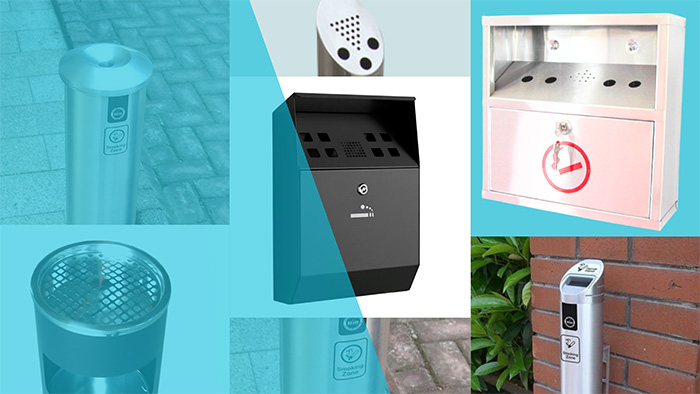The Importance Of Providing Suitable Cigarette Bins In Stadiums And Public Locations

Cigarette waste is a pervasive issue in public spaces, including stadiums and other popular venues. With millions of cigarette butts discarded daily, the need for suitable disposal solutions has never been more pressing. Not only does this litter tarnish the appearance of our shared environments, but it also poses significant environmental and health risks. Addressing this problem through the provision of appropriate cigarette bins is a simple yet effective strategy that can lead to substantial benefits.
The Problem of Cigarette Waste
Cigarette waste is one of the most common forms of litter worldwide. In fact, it's estimated that 4.5 trillion cigarette butts are discarded annually. These small but persistent pieces of waste are made of cellulose acetate, a type of plastic that can take up to 10 years to decompose. This slow degradation process means cigarette butts accumulate in the environment, causing various issues.
Environmental Impact
Cigarette butts are not just unsightly; they are also harmful to the environment. When discarded improperly, they often end up in waterways, where they release toxic chemicals such as nicotine, arsenic, and lead. These toxins can poison aquatic life and contaminate water sources. Additionally, the plastic filters contribute to microplastic pollution, which is a growing concern for both marine and terrestrial ecosystems.
Public Health Concerns
The presence of cigarette butts in public spaces also poses health risks. Children and pets are particularly vulnerable, as they might ingest these hazardous objects. Furthermore, the chemicals leached from discarded butts can contaminate soil and water, potentially entering the food chain and affecting human health.
Benefits of Providing Cigarette Bins
Implementing suitable cigarette bins in public areas offers numerous advantages, both immediate and long‑term.
Reduction in Litter
One of the most visible benefits is the reduction in litter. By providing designated disposal points, people are more likely to dispose of their cigarette butts properly, leading to cleaner streets, parks, and stadiums.
Environmental Benefits
Proper disposal of cigarette waste significantly mitigates its environmental impact. Bins designed to contain and isolate cigarette butts prevent toxic chemicals from leaching into the environment, protecting wildlife and reducing soil and water contamination.
Health Benefits
Reducing cigarette litter also reduces the associated health risks. Fewer cigarette butts in public areas mean less exposure to toxic substances for both humans and animals, contributing to a healthier community overall.
Improved Aesthetics of Public Spaces
Cleanliness is a key factor in the attractiveness of public spaces. Effective cigarette waste management enhances the visual appeal of these areas, making them more enjoyable for everyone. This improvement can lead to increased visitor satisfaction and higher foot traffic in commercial zones.
Types of Cigarette Bins
There are various types of cigarette bins available, each suited to different environments and needs.
Wall‑Mounted Bins
These bins are attached to walls or other vertical surfaces. They are ideal for areas with limited ground space and can be placed at eye level for easy access.
Free‑Standing Bins
Freestanding bins are versatile and can be placed anywhere. They are often used in open spaces such as stadium entrances, parks, and plazas.
Portable Bins
Portable bins are lightweight and can be moved as needed. They are particularly useful for temporary events or locations where fixed bins are impractical.
Smart Bins
These technologically advanced bins can detect when they are full and notify maintenance staff for timely emptying. Some smart bins also include features for monitoring usage patterns and optimising placement.
Conclusion

Community engagement and education are also critical components of successful waste management. Raising awareness, promoting responsible disposal, and involving local organisations can drive behavioural change and increase the proper use of cigarette bins. Furthermore, adhering to legal and regulatory standards ensures compliance and reinforces the importance of maintaining clean and safe public environments.










































